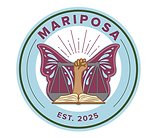
theory of change pathway
Our starting point
Immigrant families face systemic barriers that limit their access to justice, stability, and opportunity. Legal services are often too costly, misinformation is widespread, and career pathways into the legal profession remain out of reach for many young leaders from immigrant backgrounds. Without change, families remain vulnerable and communities struggle to thrive.

Outreach to
others
training
representatives
Community
empowerment
providing
services
community
strength
Our approach
Outreach To Others
We begin by reaching out to immigrant communities, especially youth and families, through partnerships with schools, colleges, and local organizations. By providing education, resources, and entry points into advocacy, we build trust and spark interest in community-driven justice.
Training Representatives
Community members who are interested in serving take part in our training programs to become accredited representatives and grassroots advocates. This creates a clear career pathway for individuals who might not otherwise have access to law school or formal legal training.
Community Empowerment
Trained advocates provide low-cost, client-centered, and trauma-informed legal services, protecting families from exploitation and ensuring they have the tools to navigate complex immigration systems. This not only serves immediate needs but also develops hands-on experience for new advocates.
Providing Services
Through their service, accredited representatives and advocates grow into leaders who reflect the lived experiences of the community. They become mentors for the next generation, ensuring that knowledge and skills are continuously passed down.
Community Strength
As legal services expand and advocacy grows, families are safeguarded, youth are equipped with careers in service, and policies are influenced by community voices. The result is a self-sustaining cycle where the community educates, protects, and uplifts itself while advancing broader justice and equity.
our vision
Our young legal advocates, realizing their own capacity while simultaneously providing legal assistance in client-centered and trauma-informed manner, will lead our community forward towards equity, justice, and joy
The need
The U.S. immigration system is complex, costly, and often inaccessible to those who need it most. Families across the Tri-Counties (Santa Barbara, Ventura, and San Luis Obispo) struggle to navigate legal pathways due to an entrenched lack of information about their rights and a severe shortage of accessible legal services.
